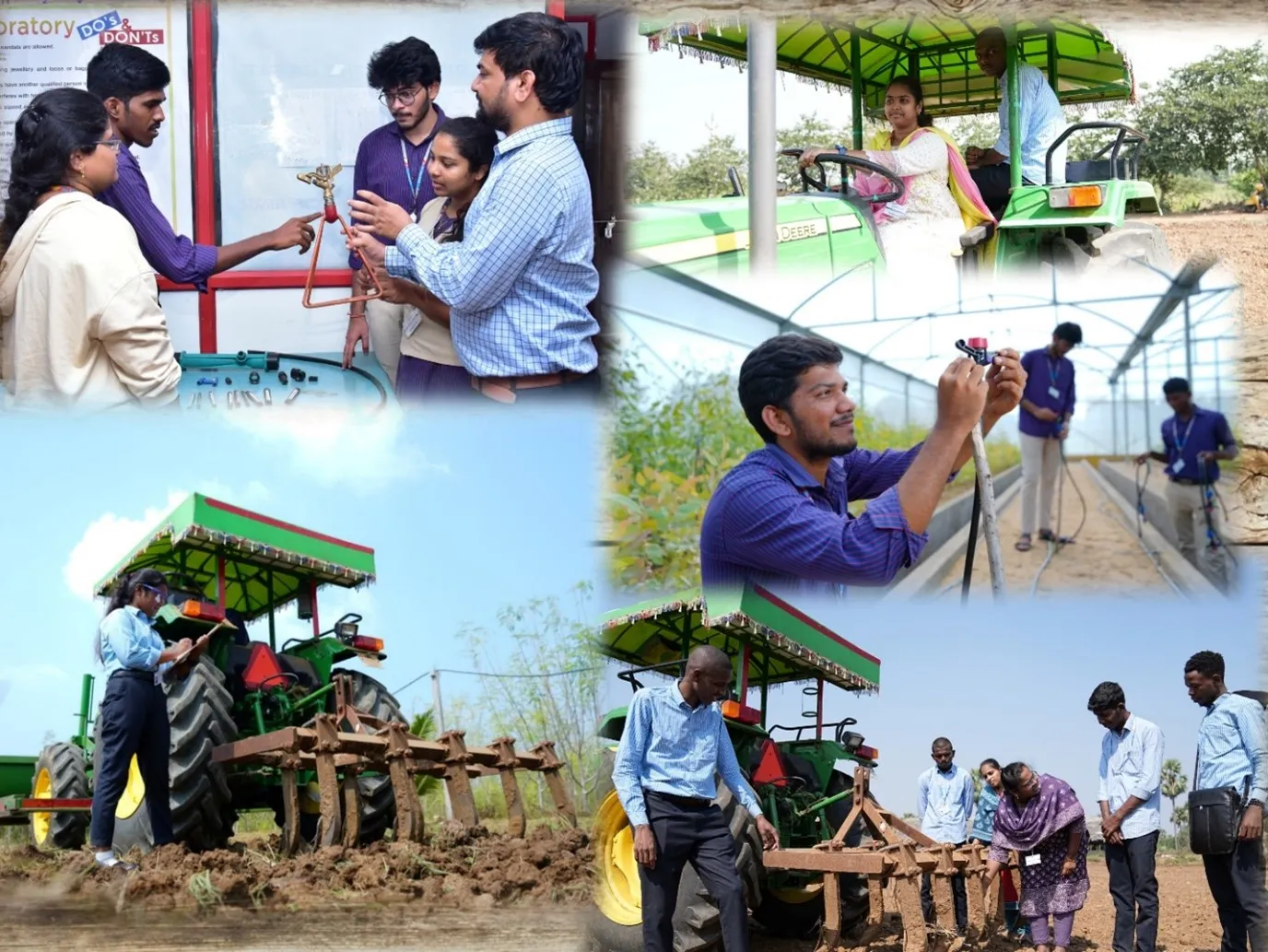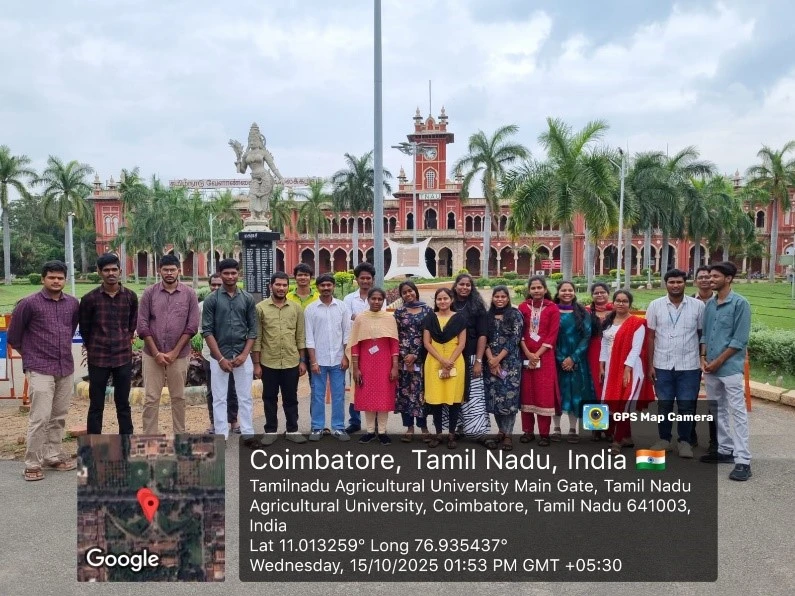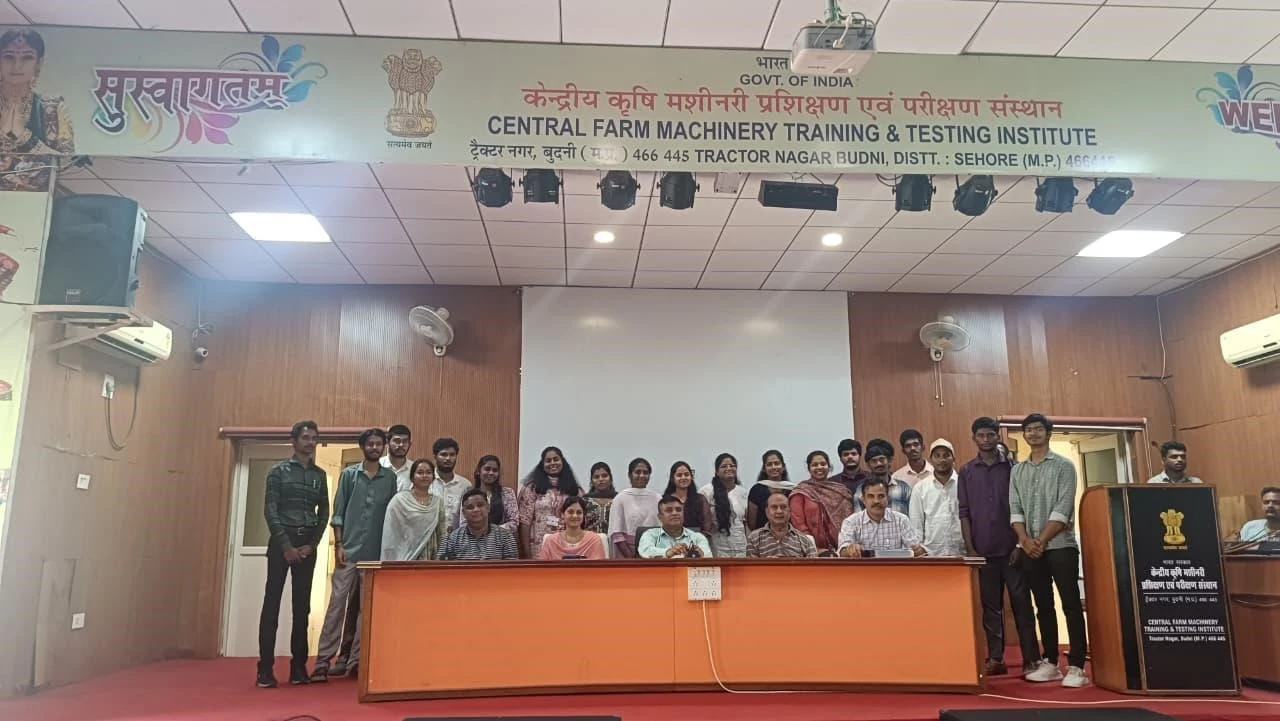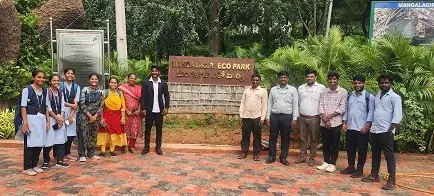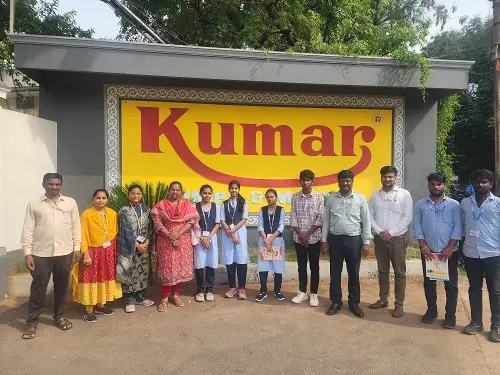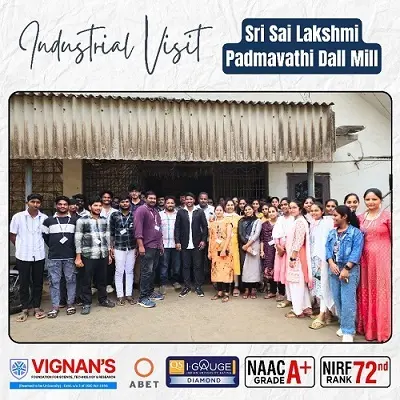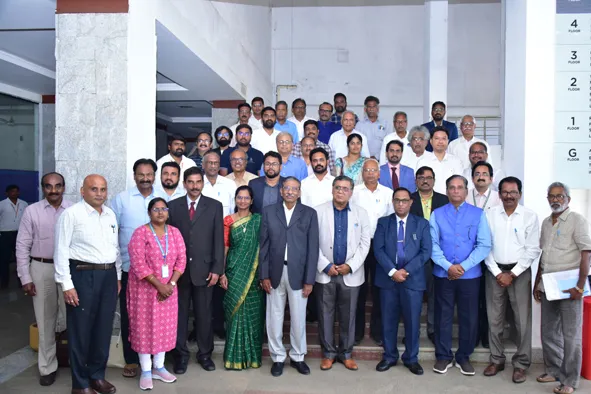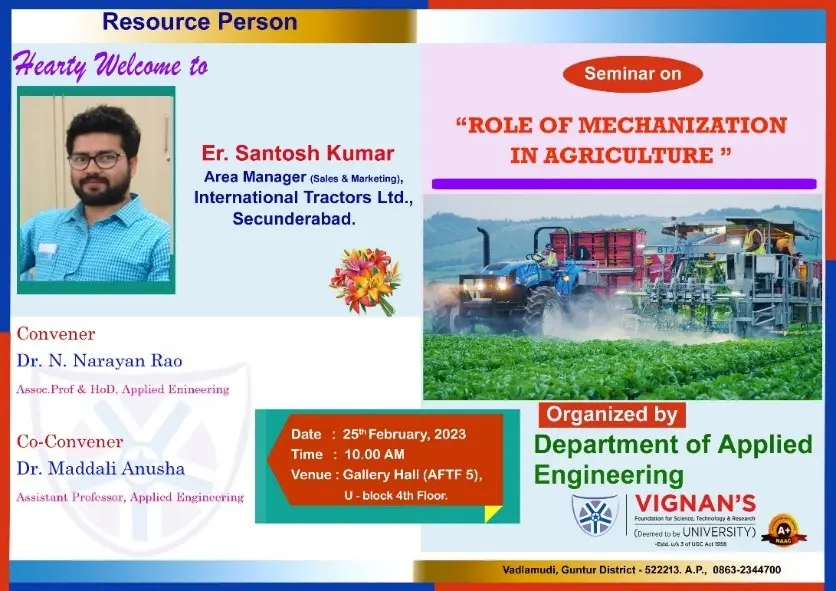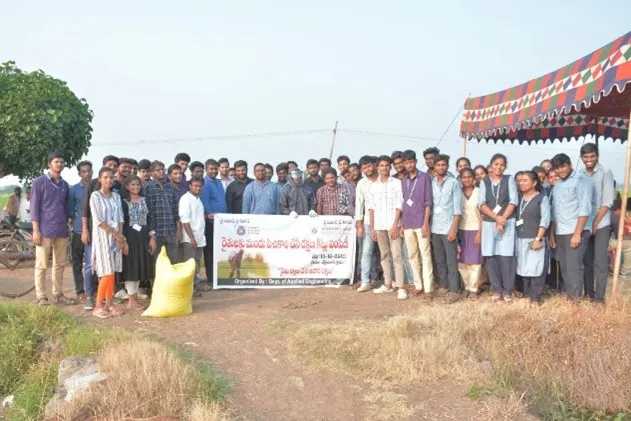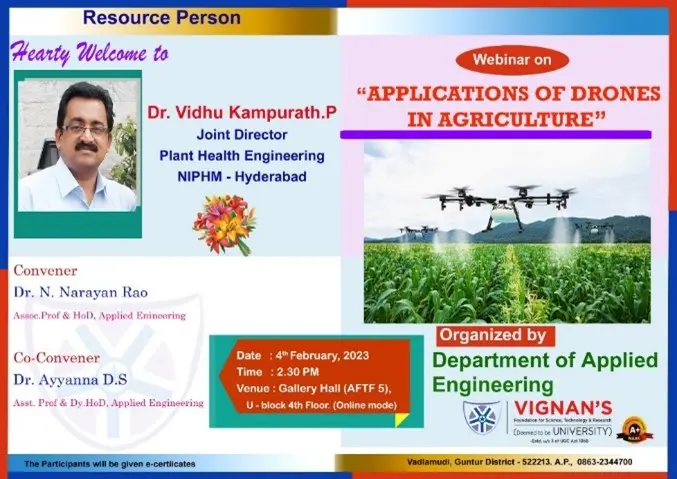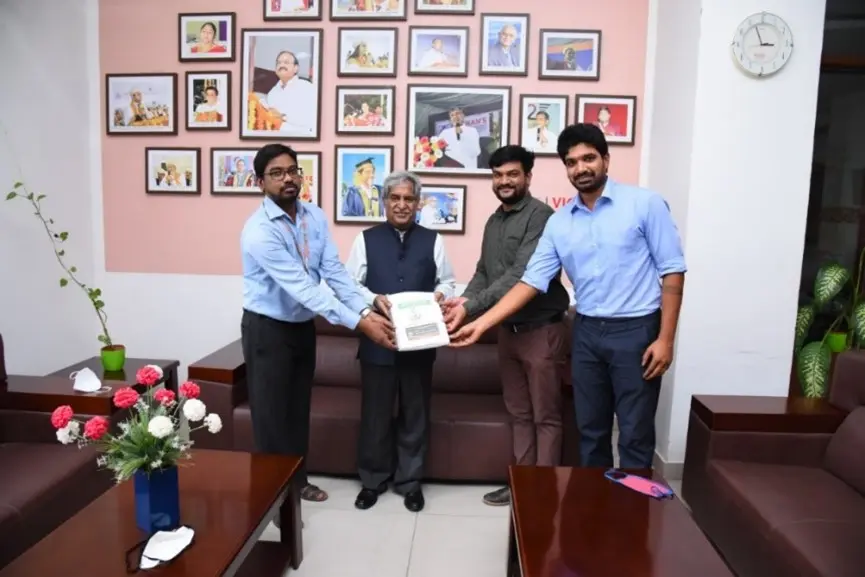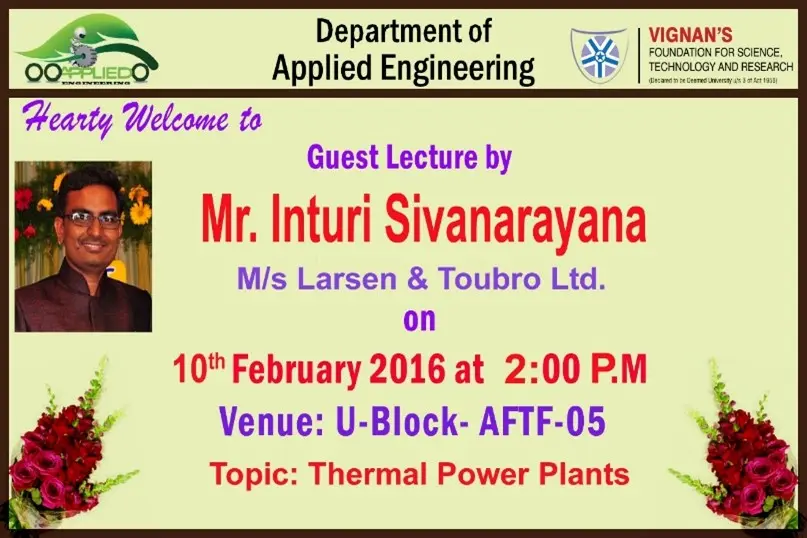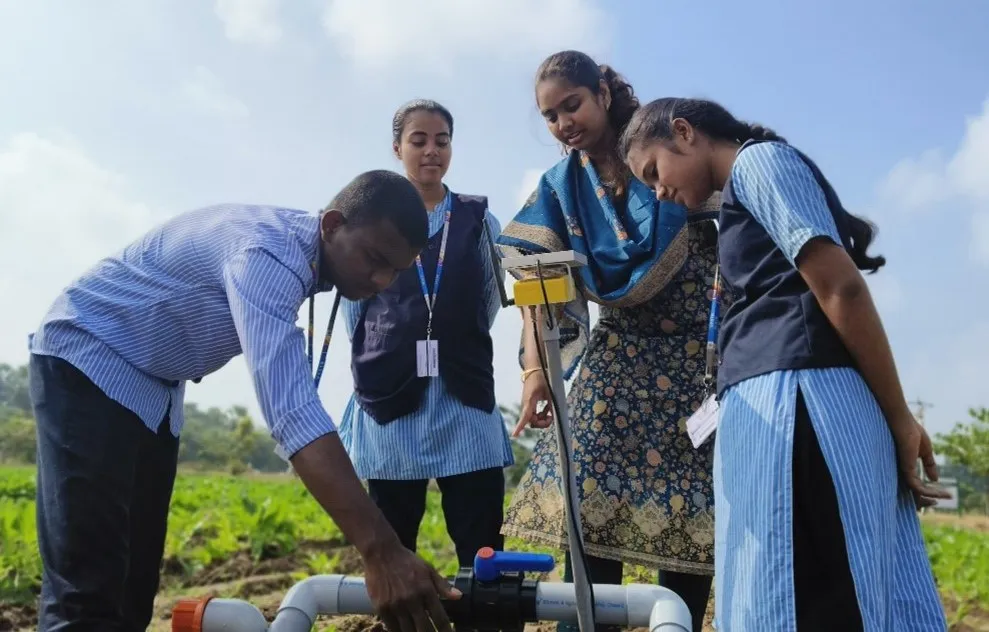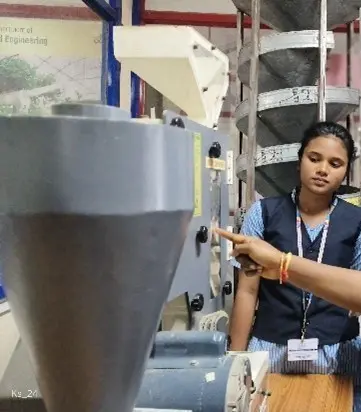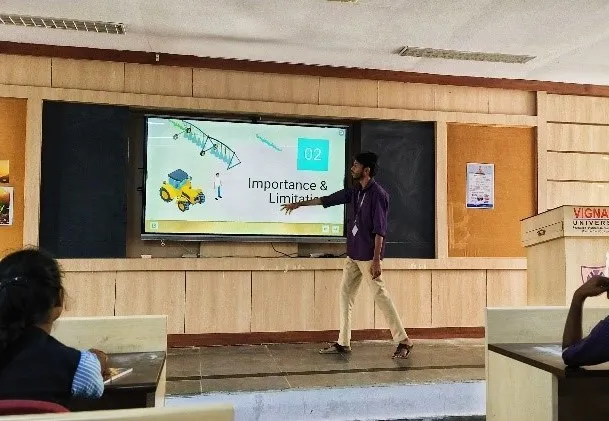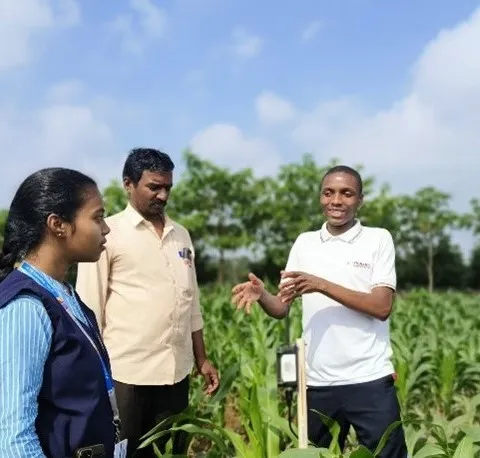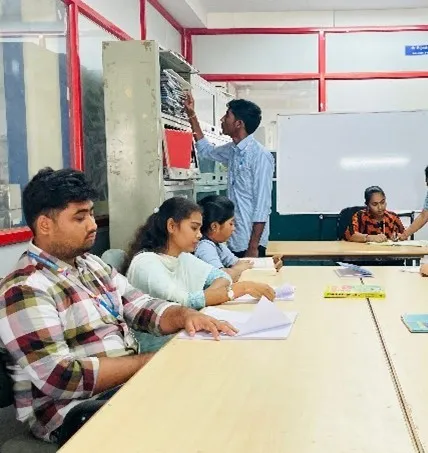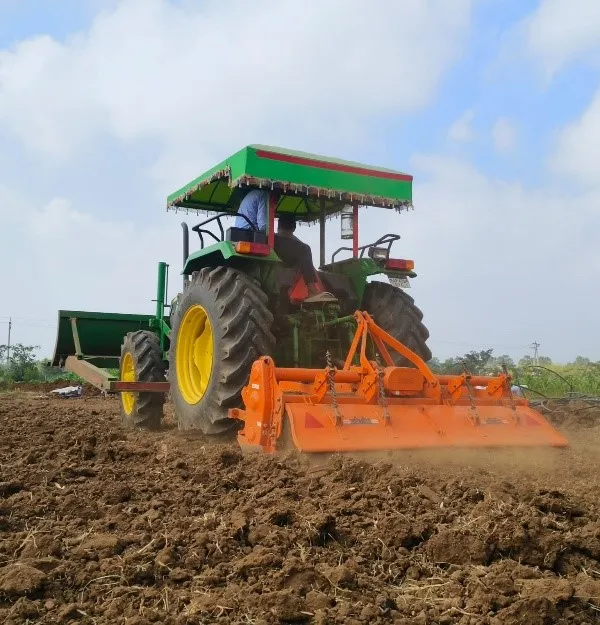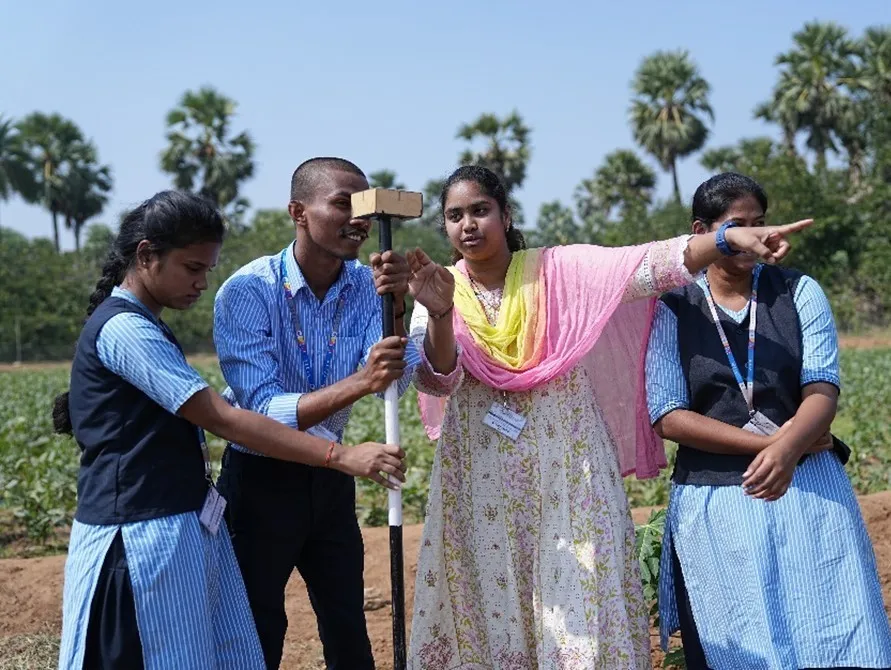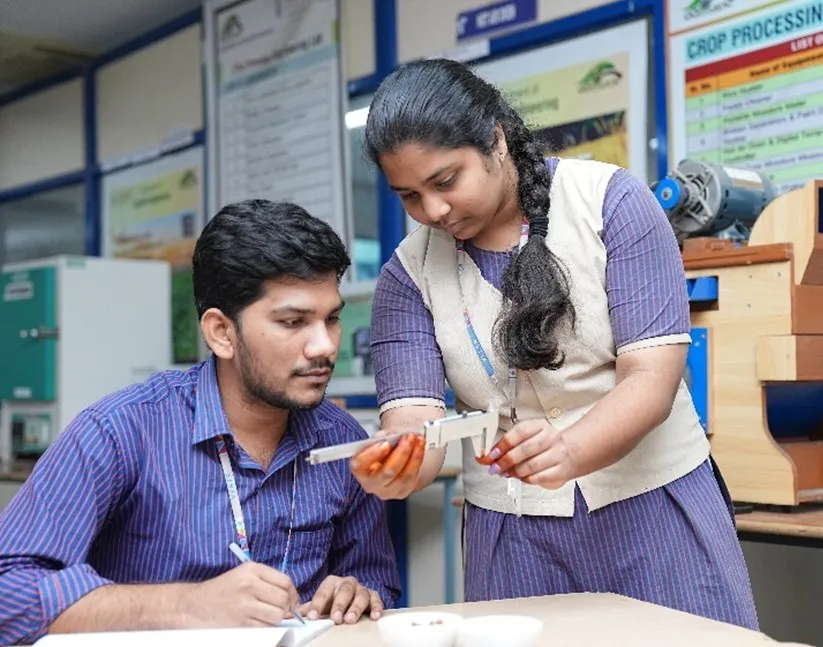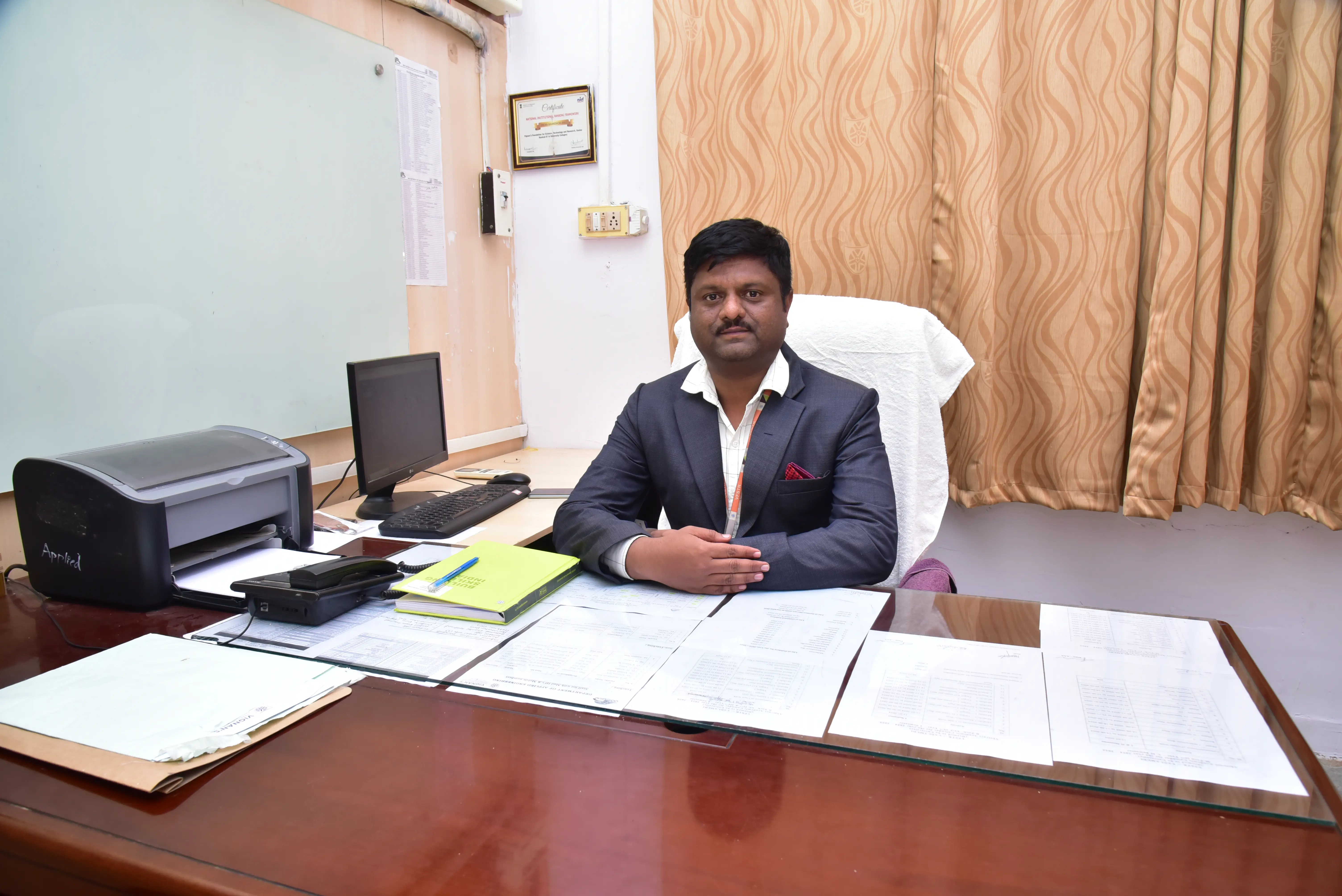25-Oct-2025
Students Educational Tour
The objective of the industrial visit was to gain practical exposure to renewable energy applications in agriculture, soil and water conservation practices, food processing techniques, and advanced research in crop production and management.On the first day, we, the final-year students of Agricultural Engineering, visited Tamil Nadu Agricultural University (TNAU), Coimbatore, where we explored various renewable energy technologies utilized in the agricultural sector. Experts demonstrated how solar dryers, biogas plants, and solar-powered irrigation systems contribute to promoting sustainable agriculture and reducing energy costs.On the second day, our visit to the Central Potato Research Institute (CPRI), Udhagamandalam, offered an in-depth understanding of potato research and development. The scientists briefed us on various potato varieties developed to suit different climatic and soil conditions.On the final day, we visited the Indian Institute of Soil and Water Conservation (IISWC), Udhagamandalam, where we gained practical exposure to soil and water conservation measures suitable for hilly and erosion-prone regions. Experts explained various conservation techniques such as terracing, contour trenching, vegetative barriers, and rainwater harvesting.
25-Oct-2025
Training at the Central Farm Machinery Training and Testing Institute (CFMTTI), Budni.
The students of final year undergone one month of training program under skill development -1 at the Central Farm Machinery Training and Testing Institute (CFMTTI), Budni (Madhya Pradesh), from 1st September 2025 to 26th September 2025. During this period, they explored to multiple aspects of agricultural machinery, including the testing, maintenance, and operation of various farm implements and tractor systems. This training greatly enhanced their technical knowledge and practical understanding of modern agricultural machinery and mechanization. It also provided valuable insights into the testing standards, evaluation procedures, and quality assurance methods followed at CFMTTI. The guidance and support provided by Dr. Vara Prasad and Dr. Nageswararao throughout the training were instrumental in making the experience informative and enriching.
17-Jun-2025
Educational visit to ECO Park , Mangalagiri
Our educational visit to the Eco Park in Mangalagiri was an enlightening experience, providing valuable insights into the diverse types of soils and weather conditions. The park's unique landscape and interactive exhibits allowed us to explore the fascinating world of soil science and ecology. The visit included hands-on activities and interactive exhibits that allowed us to engage with the subject matter in a fun and meaningful way. We participated in soil sampling and analysis, learning about the importance of soil testing and its applications in agriculture and ecology.The educational visit to the Eco Park in Mangalagiri was a valuable experience that provided us with a deeper understanding of the complex relationships between soil, weather, and ecosystems. We gained practical knowledge and insights that will help us appreciate the importance of sustainable practices in agriculture and environmental conservation.
17-Jun-2025
Industrial Visit to Kumar Pumps and Motors , Tenali
Our industrial visit to Kumar Pumps and Motors in Tenali provided valuable insights into the manufacturing process of pumps and motors. We witnessed the production of various types of pumps, including centrifugal and submersible pumps, and learned about the quality control measures in place. The visit helped us understand the importance of precision engineering and innovation in the industry, and we gained practical knowledge about the design, development, and testing of pumps and motors.
01-Feb-2025
Sri Sai Lakshmi Padmavathi Dal Mill
This industrial visit helped students understand the practical applications of the concepts learned in the classroom, providing them with hands-on knowledge of the different unit operations involved in dal processing. The visit also gave students insight into the latest technologies and machinery used in the industry, enhancing their understanding of the agricultural engineering field.
14-Feb-2024
Vignan conducted Industry academia interaction
“Industry Academia Interaction Program" was organized on Wednesday under the auspices of the School of Agriculture and Food Technology of Vadlamudi Science University, Chebrolu Mandal. Dr. Ravi Khetarpal, Executive Director of APARI (Asia-Pacific Association of Agricultural Research Institutes) in Bangkok, who attended the program as the chief guest, said that the best results can be achieved technically if students are taught the curriculum not only by teachers but also by industry leaders. He said that if more MoUs are formed with industries, it will be possible to provide students with practical knowledge skills and send them for internships. He said that currently there is a shortage of candidates in the industries... Skilled candidates will get good opportunities.
President of AP Chamber of Commerce, Potluri Bhaskara Rao, who attended the program as the guest of honour, said that the students studying agriculture should provide necessary research technologies to the farmers and teach them marketing skills. Later, the chief guests were felicitated. Dr. KPC Rao, former scientist of ICRISAT, Hyderabad, Dr. KP Vidhu, IIT Kharagpur, Prof. P. Srinivasa Rao, Vignan’s University Vice Chancellor, Prof. P. Nagabhushan, Registrar, Dr. MS Raghunathan, Deans, Heads of the respective departments were present in the program Staff participated.
17-Oct-2023
Role of Mechanization in Agriculture
A webinar titled “Role of Mechanization in Agriculture” was conducted by the Agricultural Engineering (AGE) Department on 17th October 2023. The session was hosted by Er. Santosh Kumar, Area Manager, International Tractors Ltd. The webinar ran from 10:00 am to 12:30 pm.
10-Oct-2023
AE Students Distributed Spraying Kits to Vadlamudi Farmers
In a noteworthy stride toward ensuring the well-being of the farming community, students from Vignan's Foundation for Science, Technology & Research (VFSTR) Applied Engineering Department took proactive measures by distributing protection kits, specifically spraying kits, to farmers in Vadlamudi village on October 10, 2023. These kits are strategically designed to shield farmers from potential hazards associated with the use of chemicals and fertilizers in agriculture. The distribution event garnered distinction with the presence of esteemed Chief Guests: Dr. T. Ramesh Babu, Dean of the School of Agriculture and Horticulture; Dr. M. S. S. Rukmini, Dean of Students Affairs; Dr. P. Vijaya Babu, UEAC Programming Officer; and Dr. N. Narayan Rao, Head of the Applied Engineering Department.
Addressing the gathering, Dr. M. S. S. Rukmini delivered a morally charged speech, shedding light on the detrimental effects of chemicals on the human body. She underscored the crucial role of spraying kits in mitigating health risks, urging farmers to adopt safer agricultural practices for their well-being. Dr. P. Vijaya Babu, UEAC Programming Officer, complemented the initiative with a comprehensive speech on the proper usage of spraying kits. He provided valuable insights into the timing and method of applying chemicals and fertilizers, emphasizing the importance of adhering to safety guidelines. Dr. Babu elucidated that the spraying kits serve as a protective barrier against splashing, spilling, leaks, spray drift, and clothing contamination. He passionately urged farmers to abstain from eating, smoking, drinking, or chewing while using pesticides to ensure their safety.
In a commitment to ongoing support, Dr. P. Vijaya Babu pledged to conduct awareness campaigns, addressing farming-related doubts and problems within the Vadlamudi village. Additionally, he announced a daily initiative where agriculture faculties and researchers from Vignan University would visit the village to engage in discussions about farming challenges and provide practical solutions. The proactive stance taken by the Applied Engineering students exemplifies VFSTR's dedication to community welfare and sustainable agricultural practices. By empowering farmers with these protective measures, the university aims to contribute to the overall well-being of the Vadlamudi community, fostering a safer and healthier agricultural environment.
04-Feb-2023
Applications of Drones in Agriculture
A webinar titled "Applications of Drones in Agriculture" was conducted by the Agricultural Engineering (AGE) Department on 4th February 2023. The session was hosted by Dr. Vidhu Kampurath, Joint Director of Plant Health Engineering at NIPHM. The webinar ran from 10:00 am to 12:30 pm.
24-Jul-2020
Integrated Approach for Sustainable Agriculture and Allied Sciences
The Integrated Approach for Sustainable Agriculture and Allied Sciences (IA-SAAS) Conference was conducted by the Agricultural Engineering (AGE) Department on 24th July 2020.
10-Feb-2016
Mr. Inturi Sivanarayana
The Department of Agricultural Engineering organized a Guest Lecture on February 10, 2016, as part of their guest lecture series. The session was conducted by Mr. Inturi Sivanarayana, a professional from Larsen and Toubro Ltd., who delivered an insightful lecture on the topic of Thermal Power Plants.



